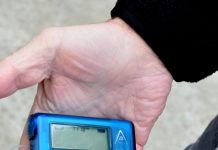For related information on diabetes and overweight children, visit:
Children with diabetes have healthy life if they get exercise. Exercise also helps in managing their diabetes. Children can gain strength, balance, thinking, coordination and endurance with exercise. Blood sugar levels in children will be in healthy range, as exercise makes insulin work better in the body.
Overweight children with diabetes have other health problems like blood pressure and heart diseases; therefore they can maintain healthy weight with exercise.
What happens when diabetes children exercise?
When children with diabetes exercise, they may experience low blood sugar (hypoglycemia) or high blood sugar (hyperglycemia). Hypoglycemia condition occurs during or after the exercise, especially if the levels of insulin in the body are high following an injection.
You can identify low blood sugar levels in your kid by the signs of anxiety, hunger, sweating, headache, lightheadedness, and confusion. Seizures or fainting occurs in severe situations. You should check blood sugar levels in kids and provide extra snacks to prevent low blood sugar levels. If your child is going for rigorous exercise program, the doctor may recommend dosage of insulin to prevent hypoglycemia.
Muscles of the kids need more energy during workout, so their body responds by releasing extra sugar or glucose into the blood. If their body does not have enough insulin to use glucose, sugar will stay in the blood. This makes the child to urinate more and it can lead to dehydration. Signs of high blood sugar in children are weakness, excess thirst, fatigue and blurred vision.
What are the exercise tips that should be followed by diabetes children?
Child’s meal plan should be adjusted in such a way that extra energy is provided during exercise. Extra snacks should be taken by the child before during and after the exercise workout. You should explain the consequences, if they do not take snacks.
Children should drink water before, during and after exercise otherwise dehydration occurs in their body. Child’s doctor can suggest dosage of insulin for exercise. As physical activity lowers the blood sugar level, the dose of insulin should be reduced in children.
Parents should take an active role in ensuring that diabetic kids exercise regularly and encouraging physical activity. All children must maintain safety measures while exercising [exercise guidelines] to avoid complications.
Children can perform cardiovascular exercises that include walking, swimming, cycling, running, jumping rope and dancing. Children should warm up their muscles before performing high intensity activities.
When safety measures are taken by obese children with diabetes while exercising, they can control their blood sugar levels and can lead a healthier life.













